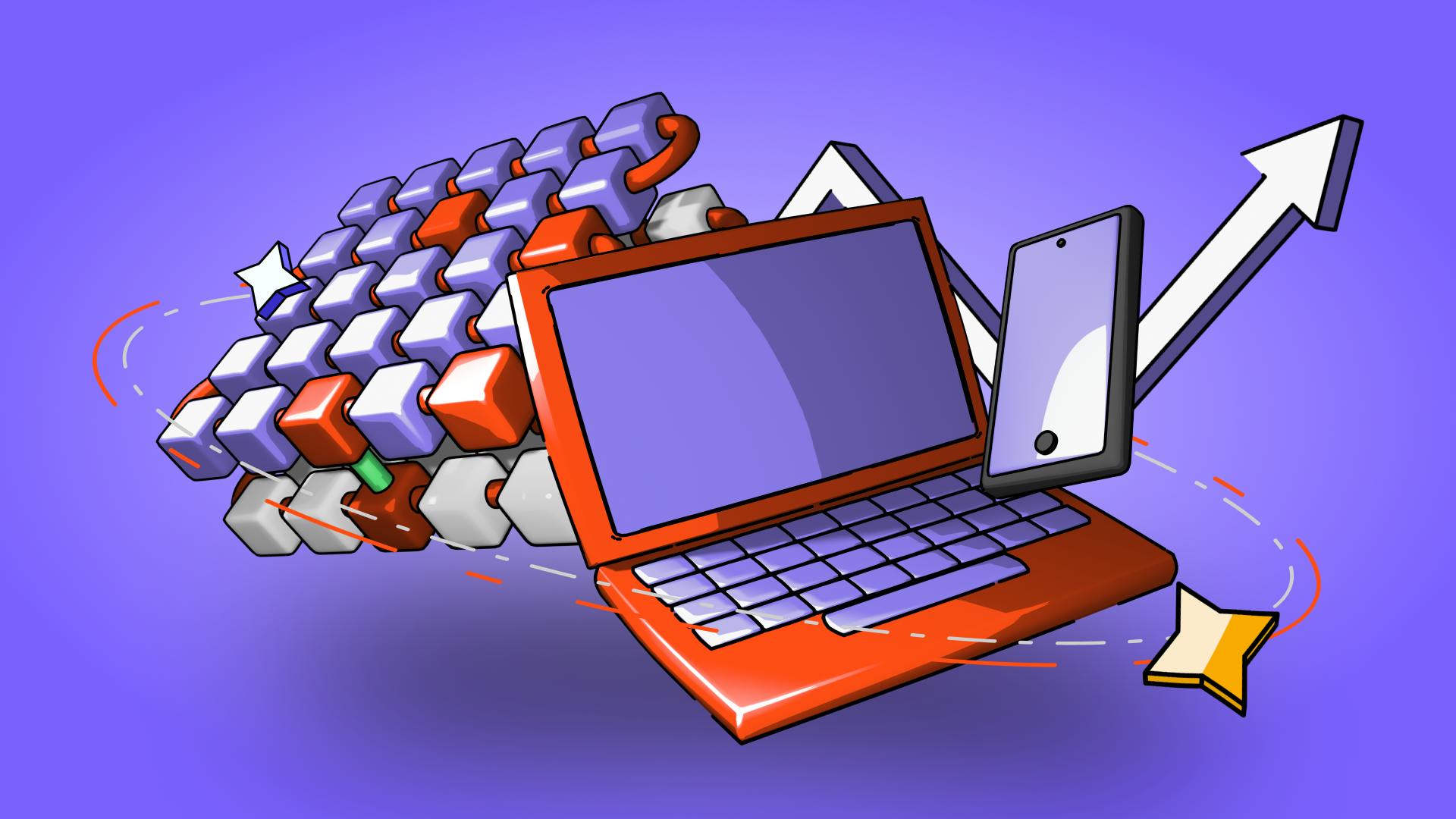The Future of Programmable Money: Smart Contracts in Finance
December 5, 2025

by Coinmetro Editorial Team
December 5, 2025
Programmable money represents a form of digital currency that can be automatically managed and controlled through software programs known as smart contracts. This technology enables the execution of financial transactions and programs in response to predefined conditions and rules. The concept of programmable money was introduced with the advent of blockchain technology, which provides the underlying platform for executing these complex transactions securely and transparently.
Bitcoin, introduced in 2009, is often regarded as the first form of programmable money. Although its programmability is somewhat limited compared to later blockchain implementations, it still includes some essential features that represent the pillars of its success, including the final market cap of 21 million, the pre-programmed halvings of mining rewards, and the ability to execute simple, conditional types of smart contracts. After its launch, Bitcoin's underlying technology laid the groundwork for developing more complex programmable currencies, where smart contracts have become more sophisticated and integral to digital currency operations and programmable money systems.
Ethereum, launched in 2015, would be more accurately described as the first blockchain platform to enable true programmable money through its extensive support for smart contracts. This platform allows developers to create sophisticated financial applications and crypto tokens directly on the blockchain, significantly expanding the capabilities and applications of digital money beyond what Bitcoin initially offered.
As mentioned, the cornerstone of programmable money is blockchain technology. This decentralized digital ledger records all transactions across a network of computers, making the data transparent and resistant to alteration. These self-executing smart contracts extend their functionality beyond simple transactions between parties to include more complex financial mechanisms. These can include tasks such as controlling the supply of a cryptocurrency, automatically adjusting its inflation rate, or executing predetermined token-burning events to manage token scarcity and value. Such automated tasks are encoded into the blockchain, where they can execute based on specific triggers or conditions met within the ecosystem. This level of automation ensures that monetary policies intended to influence the economic behavior of a cryptocurrency are enforced consistently and transparently, without the need for manual intervention or the potential for human error. This application of smart contracts contributes significantly to the dynamic and responsive nature of programmable money, making it an integral tool for sophisticated financial management and innovation in the digital economy.
The functionality of programmable currencies largely depends on the strength of their code architecture and programming languages. Ethereum, the leading blockchain platform for creating smart contracts, primarily uses Solidity. These languages allow developers to craft the rules governing how the money operates, automating actions like transfers, releases of funds upon contract completion, and more, all without intermediary oversight.
This shift towards programmable money facilitated by blockchain and smart contracts is redefining financial transactions. It enhances security, reduces costs, and increases transaction processing speed, pointing towards a future where finance operates with unprecedented efficiency and accountability.
Programmable money can transform personal finance by automating many routine financial tasks. For example, smart contracts can automatically pay recurring bills on their due dates without manual input, ensuring payments are never late. Additionally, they can manage savings by automatically transferring a defined percentage of monthly income into a savings account or investment portfolio, adjusting the amounts based on predefined rules such as changes in financial status or major expenditures.
However, such features are already available with most traditional banks' fintech solutions. Beyond this, programmable money is revolutionizing personal finance by leveraging DeFi technologies, which go beyond simple conventional banking automation tasks:
Staking: Smart contracts enable individuals to engage in staking, locking their digital assets to secure a protocol and earn rewards in exchange. This introduces a new way for individuals to generate passive income through their crypto holdings.
Lending & Borrowing Markets: Users can lend their excess holdings and earn interest without the need for a traditional bank. Conversely, they can borrow against their crypto assets without a credit check, relying solely on the collateral they can provide. This system democratizes access to financial services, making them more accessible and flexible.
Tokenization: Through tokenization, real-world assets such as real estate, art, and even intellectual property can be converted into digital tokens on a blockchain, allowing for fractional ownership and easier liquidity. This can drastically lower entry barriers for investment and create new financial opportunities for individuals.
For businesses, smart contracts can automate complex agreements, ensure compliance, and execute transactions without the delays typical of manual oversight. This capability is particularly valuable in supply chain management, where payments can be automatically released as goods move through various delivery stages, verified against contractual benchmarks.
Moreover, programmable money can facilitate more dynamic and responsive pricing models, where prices can adjust automatically based on inventory levels, demand spikes, or promotional strategies. This responsiveness may significantly enhance operational efficiency and profitability.
Implementing programmable money on a larger economic scale offers intriguing possibilities and could significantly impact the global economy. By enabling more efficient, transparent, and secure financial transactions, programmable money has the potential to reshape international trade, enhance monetary policy effectiveness, and streamline government spending and taxation.
Programmable money - such as Ripple (XRP) - can simplify cross-border transactions by reducing currency exchange fees and processing time. This ease of transaction can foster smoother trade relations and increased economic integration between countries. For businesses engaged in global trade, programmable money could make it easier to operate in multiple markets.
On another instance, governments could use programmable money to improve the efficiency of internal operations and public welfare programs. For example, benefits or aids could be distributed more quickly and securely to citizens using blockchain-based currencies. This could help reduce fraud and ensure that funds are used for their intended purpose without misallocation.
Overall, integrating programmable money into personal finance and business operations represents a shift towards a more inclusive and interconnected financial ecosystem, where the traditional boundaries of finance are redefined, and more control and opportunities are offered to individual users. Furthermore, this makes financial transactions more secure, efficient, and less prone to human error.
Despite the advanced security features of blockchain technology, programmable money is not immune to security breaches and cyber threats. Vulnerabilities can arise from coding errors in smart contracts, which may lead to unauthorized access and financial loss. For example:
- The infamous 2016 attack on The DAO protocol exploited a smart contract bug, resulting in significant financial damage.
- The collapse of Terra (LUNA) and its stablecoin UST in May 2022, where flaws in the design of the algorithmic stablecoin system led to a catastrophic de-pegging and loss of nearly all its market value.
To address these security concerns, it is crucial to implement robust security protocols, including comprehensive code audits and testing by independent security experts. Enhancing the encryption methods and ensuring that security measures evolve with technological advancements can also mitigate risks. Regular updates and patches to fix vulnerabilities as they are discovered are vital for maintaining the integrity and security of programmable money systems.
The integration of programmable money into the global financial system poses significant regulatory challenges. The decentralized nature of blockchain can complicate the enforcement of traditional financial regulations, including anti-money laundering (AML) laws and know-your-customer (KYC) policies.
Existing regulatory frameworks may need to be adapted or entirely redeveloped to accommodate the unique characteristics of programmable money. For instance, new regulations may be needed to recognize digital identities, establish standards for smart contracts, and ensure that programmable money complies with international financial regulations.
An analysis of current regulatory frameworks shows that some jurisdictions have begun to establish guidelines for cryptocurrencies and related technologies, while countries like Nigeria, China, and Jamaica have introduced CBDCs (Central Bank Digital Currencies). A harmonized regulatory approach that fosters innovation while protecting users and the financial system will be essential for programmable money to reach its full potential.
The possibility of programmable money replacing traditional currencies is a topic of ongoing debate. Programmable money offers numerous advantages, including enhanced transaction speed, reduced costs due to eliminating intermediaries, and increased transparency and security facilitated by blockchain technology. These features make it an attractive alternative for digital transactions.
However, there are cons to consider. Programmable money relies heavily on technology and internet access, which might limit its use in regions with inadequate infrastructure. Additionally, adopting programmable money requires significant changes to existing legal and regulatory frameworks, which can be slow and complex. There's also the issue of public trust and understanding, as the complexities of blockchain and smart contracts may only be readily understood by some, potentially hindering widespread acceptance. Moreover, the volatility observed in many digital currencies could deter their use for everyday transactions, where stability is often preferred.
Furthermore, some countries will likely not be willing to replace the government-controlled traditional fiat currencies with programmable money that is more decentralized and automated, thus giving away the leverage they have over the currency. However, programmable money is expected to continue growing as a significant component of the financial ecosystem, complementing traditional money rather than replacing it entirely.
Industry experts have varied forecasts about the future of programmable money. Some predict that as technology evolves and more people become digitally savvy, the adoption of programmable money will accelerate. For example, experts like Vitalik Buterin, the co-founder of Ethereum, suggest that the increasing integration of blockchain technology in financial applications will likely increase the reliance on programmable money.
However, the likelihood of these predictions coming to fruition depends on several factors, including technological advancements, user adoption rates, and regulatory developments. The journey toward widespread adoption of programmable money is complex and filled with potential technological and regulatory challenges that could slow or alter its path.
Major banks and financial institutions are already adapting to the rise of programmable money. Many are exploring or have already implemented blockchain technology to streamline operations and reduce costs. For instance, several major banks have initiated projects to develop their own digital currencies or blockchain platforms for internal use and client transactions:
- JPMorgan Chase launched JPM Coin, which is used to facilitate instant transfers of payments between institutional accounts.
- The People's Bank of China has been piloting the Digital Yuan, a state-backed digital currency aimed at enhancing the speed and efficiency of transactions while also providing the government with greater oversight of financial transactions.
- HSBC has also experimented with blockchain for settling foreign exchange transactions, significantly reducing the time needed for these processes from days to seconds.
The transformation of banking systems with programmable money could lead to more efficient services, such as instant settlement of cross-border payments and enhanced transparency in transactions. However, these institutions must also navigate significant changes, such as shifts in regulatory frameworks and the need for new security measures to combat cyber threats associated with digital currencies.
Overall, the adaptation process for banks and financial institutions involves balancing innovation with risk management, as they integrate programmable money into their existing operations and services.
Join the Coinmetro community on Discord and Telegram, where forward-thinking traders and investors gather to share insights, explore new opportunities, and dive deep into cryptocurrencies. Should you need any help, please reach out to our world-class Customer Support Team via 24/7 live chat or email at hello @ coinmetro.com.
To become a Coinmetro user today, Sign Up now, or head to our new Exchange if you are already registered and experience our premium trading platform.
Tags
Related Articles

Regulatory Sandboxes: Fostering Crypto Innovation Within Legal Frameworks
The cryptocurrency industry’s fast rise fuels an important debate. Innovation aims to transform finance, enhancing speed and access. Yet, regulators…
5m

Crypto Options Trading: Strategies and Market Insights
Cryptocurrency markets have rapidly expanded beyond simple buying and selling. One of the most significant developments has been the rise of…
6m

The Rise of Social-Fi: Blending Social Media with Decentralized Finance
In recent years, social media and finance have started to merge, creating Social-Fi. This concept blends the engagement of social platforms with…
6m

DeFi Insurance Platforms to Watch in 2024
Decentralized Finance (DeFi) insurance addresses the growing need for insurance against hacks, smart contract failures, and other DeFi-related risks.…
7m